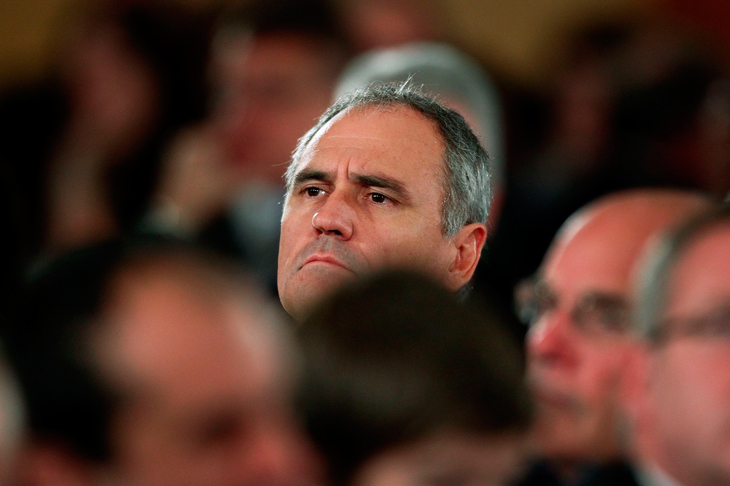Bed-wetters are on the move; the federal parliamentary Liberal party’s problem is now a liquid liability in Collins and O’Connell Streets. Remember the good old days when a company’s purpose was to make a profit so it could grow bigger and richer, reward shareholders, employ more people – and as a result, Australia benefitted? Well, you’d better ease-up on the profit bit; it’s becoming a dirty word – and not just with the lefties. Last week a bevy of business leaders castigated their colleagues for their ‘divisive’ and ‘polarising’ campaign in support of the government’s languishing corporate tax cuts, effectively chastising profit-oriented corporate bosses and calling for business to ‘develop a greater social purpose’ rather than concentrating on doing their legislated duty in the best interests of shareholders. They talk of the need to repair the ‘trust deficit’ between business and a community that does not believe its promised ‘benefits’ from company tax cuts will survive corporate self-interest. Leading last week’s corporate nappy brigade was the chairman of the NAB, Dr Ken Henry. He wants business to ‘accept responsibility for the social and environmental outcomes of our activities’ and for Australians to see ‘vested interest make way for community interest…No progress on tax reform will be made if business and government fail to set a shared social purpose… Business should not be taken seriously in the tax reform debate until we demonstrate a serious commitment to a purpose that improves the well-being of Australians’. So he sees no point in a business person ‘motivated by nothing more than profit’ trying to convince anyone of the merit of cutting the tax on corporate profits.
All this corporate virtue-signalling aimed at placating the Left, misses the reality of the benefits to society from companies behaving like profit-maximising capitalists. While the RB worries about the economic consequences of stagnant wage growth, Treasury acknowledges that this was a reason for our relatively low unemployment rate and for last year’s record 400,000 new jobs. As Finance Minister Cormann told last week’s Senate estimates hearing: ‘If wages had grown more strongly, more people would have been unemployed’. Clearly the national interest was better served by more people getting jobs than the fewer with jobs getting higher pay. But try telling that to the unions or Labor. And in stressing the link between wage growth and productivity, Treasury secretary John Fraser noted that real wages are higher for businesses with higher labour productivity and that productivity-boosting reforms to the corporate tax system are one of the few certain ways of raising living standards.
At least Henry still supports the company tax cuts recommended in his Tax Review of 2010, arguing that ‘Of course we will have to cut our company tax rate… to drive a faster rate of investment and labour productivity growth that should support higher wage growth over time… But that is only a small part of the required restructuring of the tax system’. Treasury stands by its concerns about Australia’s uncompetitive company tax rates, particularly after the Trump-led widespread international rate cuts, arguing that our needed cuts will not damage the deficit – so the Reserve Bank can stop fussing. The real problem is the leftist anti-business rhetoric that has poisoned the debate, with the Shorten Labor obstructionism being rationalised on the grounds that the time is not appropriate for cuts they say they believe in. But last month’s national caucus decision by Labor’s left faction to oppose any tax cuts for big business ‘in any fiscal environment’ underlines the prospect of a ‘them and us’ conflict reminiscent of the highly unionised strike-prone years of last century.
But corporate tax problems are inconsequential compared to the government’s. Henry points to the impossible task facing the personal income tax system in having to generate an unsustainable increasing share of revenue needed to pay for the ever-growing size of government. ‘Our present tax system is not sufficiently robust to finance government spending on average through the economic cycle. It is not capable of supporting the medium-term fiscal strategy that both sides of politics have signed up to…(nor) to generate enough revenue to balance the budget…’.
Got something to add? Join the discussion and comment below.
Get 10 issues for just $10
Subscribe to The Spectator Australia today for the next 10 magazine issues, plus full online access, for just $10.
You might disagree with half of it, but you’ll enjoy reading all of it. Try your first month for free, then just $2 a week for the remainder of your first year.














Comments
Don't miss out
Join the conversation with other Spectator Australia readers. Subscribe to leave a comment.
SUBSCRIBEAlready a subscriber? Log in